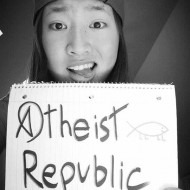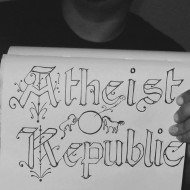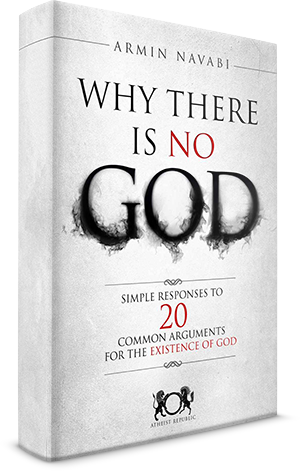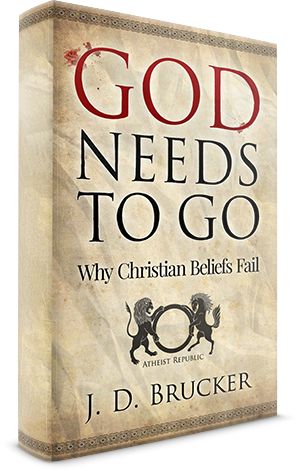I've seen posts on this board and elsewhere saying that we can choose what we believe, that we became non-believers by choice, an act of will like choosing a shirt. I think belief is more complicated than that.
Beliefs are not under our direct, conscious control. They are more like emergent properties that result from our interpretation of all our inputs - our mental model of reality. Certainly you can influence your beliefs by acting as a gatekeeper for what information you receive. For example, you can choose never to read a particular holy text, and you will vastly reduce your chances of adopting the related beliefs.
Lots of people, including the fundamentalists I grew up around, say that you are capable of simply changing your beliefs, and that's why the notion of eternal punishment or reward based on our beliefs alone makes sense to them (the doctrine of sola fide). I see it differently. Can you, for example, simply choose to believe that I am in hovering in front of you pouring pancake syrup in your hair? You may well be able to imagine what that might be like, but I doubt you could just choose to *sincerely* believe it, unless you have issues distinguishing fantasy from reality. You can't will it to happen by "trying harder."
It seems to me that just about the only way beliefs will change is if some external catalyst (new input) comes your way that can't be explained in the context of your mental model, rendering your current beliefs inadequate. I didn't really want to stop believing in the god of my youth, but at some point I became incapable of believing that particular image of god. I could no longer wedge it neatly into my mental model of reality.
What do you think?
Subscription Note:
Choosing to subscribe to this topic will automatically register you for email notifications for comments and updates on this thread.
Email notifications will be sent out daily by default unless specified otherwise on your account which you can edit by going to your userpage here and clicking on the subscriptions tab.





























Very interesting, I like the way you threw this together. I think you are right and belief is held on subconscious level one can not simply choose to believe they either do or they do not, I will say that a person can however continue telling them selves something until the day comes they forget what made them question it by like you said influencing what they allow to enter their mind.. For example tell yourself a lie for long enough and you will believe it to be true!
In short I would have to say the simple answer is "no". One cannot choose his or her beliefs as belief is in fact a psychological state of understanding something to be true. However, one can choose to disregard information; so is often the case in religion. I personally wilfully (at least on some level) chose to ignore, and or question, evidence that was contradictory to my spiritual understanding. I did ultimately choose to wilfully investigate these evidences with an open mind sans fear of divine reprisal (or more so the wrath of friends and family). which led to my ultimate shedding of supernatural mysticism.
*Although my spiritual beliefs were more complex... I was still an evolutionary biologist, scientist and sceptic on every other level. I realized that I had twisted my faith to fit my true beliefs (and therefore had pretty much created my own "Christianity" is the most basic sense possible).*
Anyway, I would say that if an individual was never brought up in a faith, they could choose to look into a religion, they could choose to investigate and take in certain information... This would lead to some belief, either to accept the faith or to remain sceptical of it. But ultimately the actual beliefs themselves are not chosen. So once a belief is set, one must be convinced otherwise... and of course Vice versa.
*Convince: To bring by the use of argument or evidence to firm belief or a course of action...
I think we can choose our beliefs because of the fact that our mind, no matter how powerful it can be, can still be controlled. The moment we decided to believe in something and think of it all over again until we deeply accept it is actually choosing to believe on it. We can choose what to believe, who to love and everything we do or say because all the behaviors and attitudes that we portray just came from our brain.
In that case, simply choose to believe that I am following you around whacking you with a mackerel. Let me know when you SINCERELY believe it.
It would be funny if she choose to believe it for long enough and eventually one day you went crazy in a store fish department bought a mackerel and starting whacking on somebody and after some intervention the police let you go because this person told them long ago they decided to believe it you were doing this as an experiment in belief which finally manifested in the belief becoming true. Because it had long ago been accepted there was no need to press charges. More funny would be when you realized what had happened and that mystics faith had led you to your actions. Just playing with the old saying that if you believe something for long enough it eventually becomes true. I wonder then how long it would take mystic to stop believing you were following them around whacking them with a mackerel. I am not sure which of you two the authorities would find to be less sane in such a matter and the whole event would probably written up as bath salts.
I am puzzled about this 'belief' concept. There is nothing in my life that I need to believe in. I don't need to believe the sun will rise tomorrow. I don't need to believe in evolution, general relativity, gravity, quantum mechanics, or that the stock market will go up or down tomorrow. All of these things are demonstrable and consistent. What's to believe?
An interesting concept indeed but I do think you still BELIEVE in these things, you may not need to believe in anything but you still do irregardless of that fact.
I understand all the words, but not in that order.
Of course for any belief that we choose, we have reasons why we choose it. We don't just believe if it weren't struck us or gave us enough reason to believe.
An atheist believes that there is no god because he can't see any evidence, so that's enough for him to believe that there is no god.
A theist believes that there is god because he feels that someone powerful guided him throughout his life and that was his religion taught to him. That may be enough reason for him to believe that god exists.
when it comes to god, your beliefes are chosen by family, the place you were born... Everything else is your choice to acknowledge or not
I believe that yes we CAN choose our beliefs, although there is an awful lot of influence placed upon our beliefs at an early age. This can lead to people becoming wholly influenced by something for their entire life and thus not having decided their own beliefs at all.
Bob Ingersoll agreed with you, and he wrote the book on atheism.
I could say Yes, that we can choose what to believe in. Maybe exceptions are those who are brainwashed. Whatever others might try us to believe, it is still in ourselves who can decide.
I believe we can choose our beliefs.
Of course, as with any choice, it's a matter of what you hope to gain vs. what you decide to sacrifice.
Myself, I could not sacrifice logic for an implausible answer. But that's just me :)
Unfortunately, as children we have no power to choose the things that our parents will teach us. As parents we have the ability to influence the future beliefs of our children.
I really hate excuses like this. Children are not limited to what their parents teach them, nor are people limited to what their society teaches them. Most remarkable people in history have gone well above and beyond the so called "available" intellectual resources of their environment, broken out and discovered something new! There's no reason that there can't be more people like that, and quite frankly I don't see why we are not all like that.
People who go around carrying excuses like "no one told me" or "I was told" whatever really irk me. We have our own minds here, no need to be lazy with them. Do you think someone *told* Einstein about relativity? These kinds of assumptions, that you have to be taught to learn, are intrinsic in theism, which proposes that we had to have been created in order to be here.
You really don't have to believe what your parents tell you. Even if you love them and trust them to do their best (which is all we can ask of them), it's not healthy to deny that they are still human, and therefore could possibly be wrong.